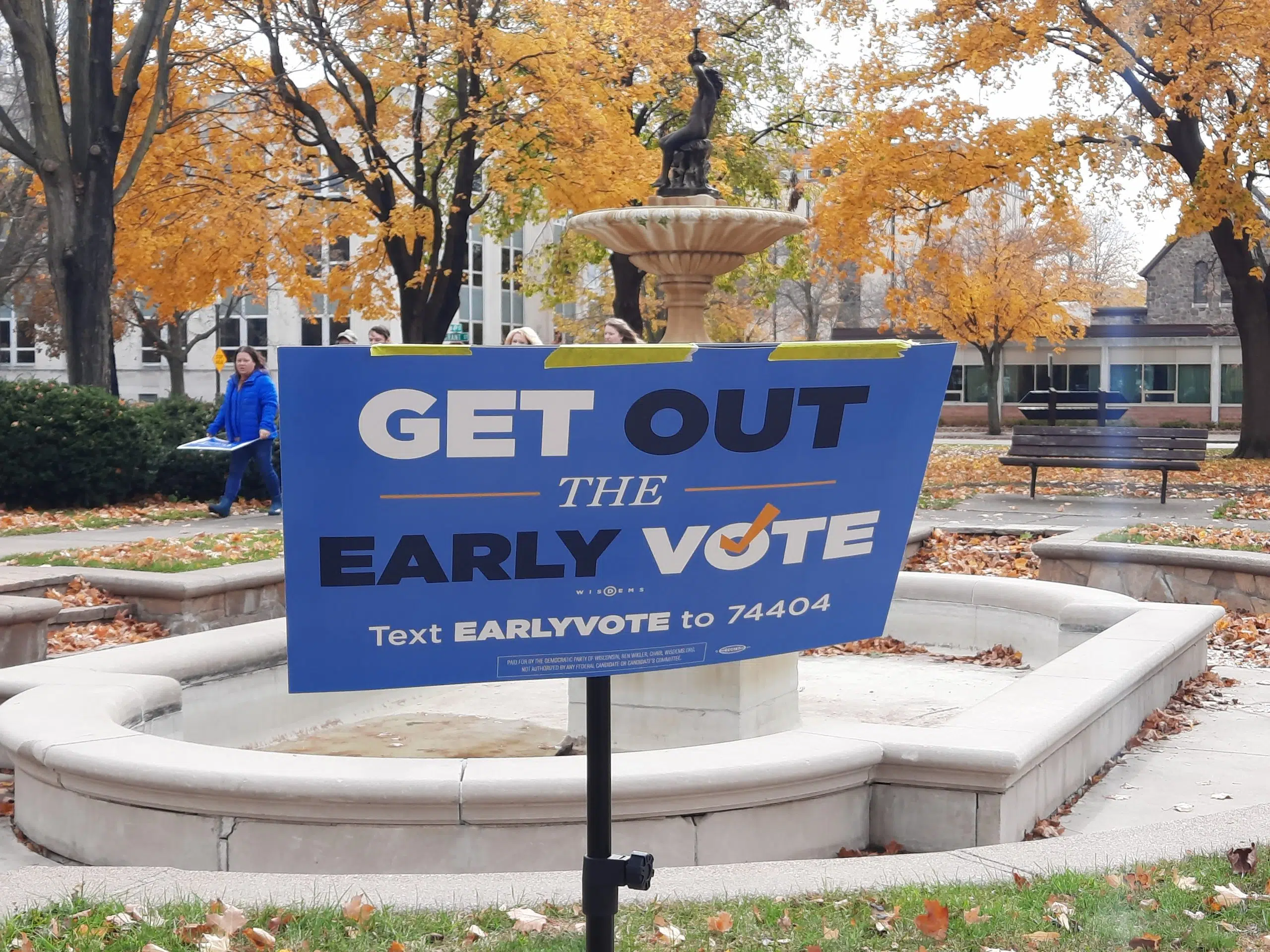
Early vote rally in Wausau. MWC photo by Mike Leischner
WAUSAU, WI (WSAU) – A new report was released on Monday detailing how Wisconsin’s voter rolls for “indefinitely confined” voters have reached an all-time high as absentee voters are set to receive their ballots in just 10 days.
According to the report, which was authored by the Wisconsin Institute for Law and Liberty, “indefinitely confined” voter rolls have reached more than 144,000, a 116% increase since 2016. The term applies to voters who are disabled, elderly, ill, or infirm and came under fire during the 2020 election when former President Trump’s campaign claimed that voters who did not legally qualify for any of those categories were able to vote using the process to avoid having to show an ID.
Voters in Wisconsin must present a valid photo ID while casting a ballot. Still, the Photo ID law passed by the Wisconsin state legislature in 2011 exempted permanent absentee voters from having to provide a copy of their photo ID to receive a ballot. Voters who identify as “indefinitely confined” select a box to sign up for automatic absentee voting “for every election” up until the point at which they either fail to return a ballot or are no longer indefinitely confined.
The report details that in 2016, Wisconsin had just 67,000 voters on the rolls who registered as “indefinitely confined,” but by 2020 that number had risen to 265,000 in a state that President Biden won by less than 21,000 votes. A recent state law required the voter rolls to be cleaned up, which dropped the total “indefinitely confined” voters to 144,000, which represents a decrease of 54%. For the state as a whole in 2020, Green Bay, Madison, Milwaukee, Janesville, and Kenosha were the areas that had the highest rate of “indefinitely confined” voters, which were all won by President Biden.
The Wisconsin Elections Commission’s website does note voters should not abuse the status, saying, “Indefinitely confined status shall not be used by electors simply to avoid the photo ID requirement without regard to whether they are indefinitely confined because of age, physical illness, infirmity, or disability,” but does not provide details on how they could prevent someone from doing so since the state Supreme Court ruled in December that only the voter themselves can decide if they’re legitimately indefinitely confined and a bill requiring voters seeking indefinitely confined status to provide a doctor’s note or photo ID was vetoed by Gov. Tony Evers in 2022.
According to the report author, Will Flanders, who spoke about the totals with the New York Post, the Wisconsin Institute for Law and Liberty hasn’t found any direct evidence proving past claims of widespread voter fraud across the state but that local governments need to comply with state law, saying, “If a municipality is non-compliant with the legal requirements to remove individuals from the indefinitely confined list, then a voter from that community would need to file a complaint with WEC.”
The Wisconsin Election Commission stated following the 2020 election that their data showed that 78% of “indefinitely confined” voters had provided a photo ID at some point during the process despite only needing a witness to verify the permanent absentee voter’s identity and to certify that verification by signing the return envelope, which was legally challenged by a Democratic law firm known as the Elias Law Group last fall that stated that requiring a witness to verify the ballot violated the federal Voting Rights Act.



Comments